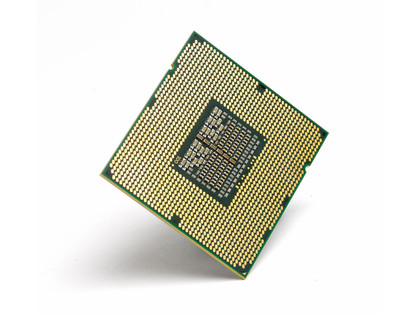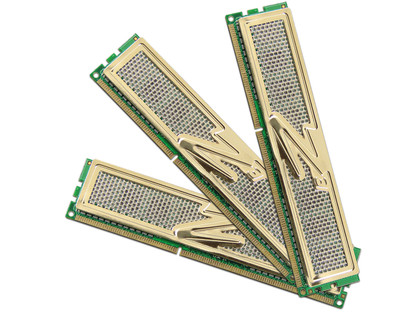The complete guide to upgrading your PC
Sign up for breaking news, reviews, opinion, top tech deals, and more.
You are now subscribed
Your newsletter sign-up was successful
CPU (Intel)
The launch of Intel's Core i7 has changed the CPU landscape considerably. Intel already had a lead on its old rival AMD thanks to the raw power of the Core 2 Duo. While these chips were somewhat inelegant, they delivered where it counted most: raw performance.

CORE I7: These are a good choice if you need a lot of power but you might do better waiting for Core i5
Core i7, however, has opened a gulf between the two companies and, thanks to the inclusion of a memory controller, meant that AMD's often-lauded memory throughput has finally been eclipsed. Intel has recently released new revisions of the Core i7, and the D0 stepping of the Core i7 920 has quickly become the most sought-after processors around, thanks in no small part to its overclocking potential.
However, while the chip itself isn't too expensive, you'll need the whole platform to make use of it, and that can cost a surprising amount of money when it's all added up. You'll need a socket 1366 motherboard to plug your processor into, enough memory to make sure the new processor has room to breathe (6GB has quickly become the norm) and of course the processor itself.
You're quickly looking at £500+ for such an upgrade, which is why AMD has managed to keep competitive.
Ultimate upgrade: The eight logical cores of the Core i7 represent the pinnacle of desktop computing. The new 920 D0 stepping offers stunning value for money, too, especially if you overclock it.
Price: £216 (£188 ex VAT)
Info: www.intel.com
Sign up for breaking news, reviews, opinion, top tech deals, and more.
Best bang for the buck: Multicore processors needn't cost the earth. The AMD Phenom II X3 720 Black Edition isn't just an affordable processor, it's also the basis of an affordable platform that can still deliver big numbers.
Price: £109 (£95 ex VAT)
Info: www.amd.com
Hold on for: It's not going to trouble the Core i7, but Intel's Core i5 boasts a more mainstream pricing for the whole platform that could provide a knock-out blow to AMD's current value processors. Expected this Autumn.
RAM
There are four types of RAM currently in circulation, and they're defined by the support offered by your motherboard. The newest addition to the world of memory is DDR3, and it's an integral part of Intel's Core i7 and AMD's AM3 platforms.
However, older DDR2 RAM is still the most common memory standard (Core 2 Duo and Phenom both use it), and for good reason: it's affordable, well supported and has a proven track record. The third most popular type of memory is DDR, which could be the memory in your machine if you haven't upgraded in recent years.

TRIPLE CHANNEL: DDR3 demands you have three sticks of RAM, one for each slot on your mobo
If you've got a very old machine then you may still have basic SDRAM, in which case you'll find upgrading surprisingly expensive as it's now very much a niche technology. Whichever memory standard you're using, RAM sticks are defined by their speed and latency.
There are a few things to watch out for: you need to get the new sticks to match the memory that's already in your machine (or alternatively throw that away and start afresh), and you need to buy in multiple numbers that match the number of memory channels on your motherboard.
So if you're running a Core i7 rig, you'll need three DIMMs, because Core i7 boasts a triple-channel memory controller. If you've got an AM2+ Phenom II, then a pair of sticks is the order of the day.
Ultimate upgrade: You can get far more affordable 6GB kits, but the Corsair Dominator GT set boasts support for 2GHz bus speeds and 8-8-8-24 latencies for an impressive slice of memory performance – and it looks impressive too.
Price: £237 (£206 ex VAT)
Info: www.corsair.com
Best bang for the buck: If money is more of an issue, the OCZ Gold 6GB 10666 triple-channel kit makes for the perfect accompaniment to a Core i7, and with 9-9-9-20 latencies it's not sluggish either. Price: £63 (£55 ex VAT)
Info: www.ocztechnology.com
Hold on for: There are no major new memory technologies on the horizon, and DDR3 memory prices are finally at reasonable levels. Prices should continue to fall a little over time, but until Core i5 arrives and shake things up further, now is a good time to buy.